Peel Board’s book cull: how does weeding support inclusion?
The Peel District School Board (PDSB) has had its challenges over the past few years. After unresolved concerns about equity and diversity within the board, it was taken over by the province and only recently allowed to manage its affairs without the Ministry of Education looking over its shoulder. Now, there are questions about a massive cull of books that took place over the spring and summer and no one at the Board wants address them.
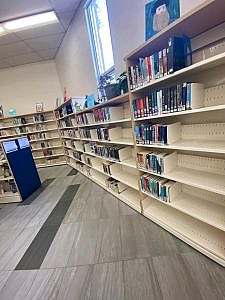
In September students returned to Peel schools to find library shelves cleared of thousands of books. Classics like Anne Frank’s “Diary of a Young Girl,” books from the “Hunger Games” series, “The Very Hungry Caterpillar” and thousands of others had just disappeared. Erindale Secondary School student, Reina Takata told CBC News that her library, full in May, was half-empty when she returned after the summer break. Staff at the school explained that they had to remove all books published prior to 2008.
By mid-September, the Ministry of Education got in on the act and Minister Stephen Lecce, in a rare unambiguous statement, said it was “offensive, illogical and counterintuitive” to remove books based on their publishing date, that are classics or teach about topics like history antisemitism. He told the Board to stop. Board Chair, David Green told the Toronto Star PDSB staff were just doing what they were told by the Ministry, looking at libraries and making sure the books in them supported “marginalized Afro-Caribbean and Indigenous students, specifically.” Right now, everything is on hold.
What was going on here? Let’s back up and take another look.
History
The Peel DSB was, for years, not exactly a standard bearer for diversity and minority rights. Just four years ago, Will Davies, trustee for McCrimmon MS casually referred to the highly racialized school he represents as “McCriminal.” He apologized, saying he never “intended it as a racist comment.” The Peel DSB’s integrity commissioner later ruled that he didn’t violate the board’s code of conduct; he was
just using a “humorous slang term.”
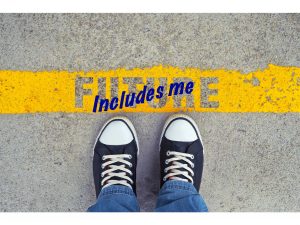 In their 2020 Review of the Peel District School Board for the Ministry of Education, Ena Chadha, Suzanne Herbert, and Shawn Richard found that Black students were still being streamed into low level applied courses; kids reported they were discouraged from taking higher level academic courses. They found that Black students were “grossly over-represented” in suspensions; principals called police to come in and handle minor issues with Black students who might go on to be arrested. As the authors wrote: “We heard from Black students, parents and members of the PDSB that some teachers use any excuse to exclude Black students from the classroom and some principals use any excuse to suspend Black students from schools: hoodie-suspension, hoop earrings-suspension, doo rag-suspension”.
In their 2020 Review of the Peel District School Board for the Ministry of Education, Ena Chadha, Suzanne Herbert, and Shawn Richard found that Black students were still being streamed into low level applied courses; kids reported they were discouraged from taking higher level academic courses. They found that Black students were “grossly over-represented” in suspensions; principals called police to come in and handle minor issues with Black students who might go on to be arrested. As the authors wrote: “We heard from Black students, parents and members of the PDSB that some teachers use any excuse to exclude Black students from the classroom and some principals use any excuse to suspend Black students from schools: hoodie-suspension, hoop earrings-suspension, doo rag-suspension”.
They heard concerns about high suicide rates among 2SLGBTQ+ students, anti-Semitic language and displays at the board, as well as curriculum materials that “conveyed blatant hostility to the Muslim community.” The PDSB “had a long way to go” to meet the Calls for Action outlined in the Truth and Reconciliation Commission report on Indigenous peoples; Indigenous students were also over-represented in suspension reports. Like Black students, Latin American students were aimed towards lower level courses.
Soon after this report came out, the province in a rare move, placed the Peel DSB under the eye of Bruce Rodrigues a provincially appointed supervisor who set out to have the board correct its glaring problems regarding equity and human rights. Education Minister Stephen Lecce issued 27 directives for Peel to address; orders that included hiring a superintendent of equity, developing an annual equity report card and establishing a student advisory committee. The PDSB was told to apologize to the community, come up with a 4-year equity action plan, de-stream grades 9 and 10 and sort out how to stop suspensions and expulsions of kids from JK to grade 3. By January 2023, the supervisor was satisfied that Peel was on the right track. The province placed the board back in the hands of its trustees, despite a complaint posted on its Facebook Page by Advocacy Peel, that Black community representatives weren’t consulted until “after he decision was made.”
Weeding books
The onus was on the Peel DSB to show that things had changed. One of the orders, Direction 18, issued by the Ministry told the PDSB to “evaluate books, media and all other resources currently in use for teaching and learning English, History and Social Sciences for the purpose of utilizing resources that are inclusive and culturally responsive, relevant and reflective of students, and the Board’s broader school communities.”
So, the Board set out to weed books considered to be inappropriate, from its school libraries. It was to be a three step process, the first of which would be to remove books that fall under the criteria of the MUSTIE acronym set out by Canadian School Libraries:
Misleading – information is not accurate or obsolete
Unpleasant- physical condition of the book necessitating replacement
Superseded- by a new edition or a more current resource.
Trivial – of no discernible literary or scientific merit; poorly written or presented.
Irrelevant – doesn’t meet the needs and interests of the library’s community.
Elsewhere – the book or the material in it may be better obtained from other sources.
There was quite a bit of discussion about the process even at this stage during the May 8th meeting of the Board’s Curriculum, Equity and Student Well-Being Committee. Among other matters, trustees were concerned about shelves going empty in some libraries where weeding had already begun. Books had been tossed out that appeared to be in perfectly good condition. What was going to happen to the culled books? Could there be a central list of books deemed inappropriate to which teacher librarians might refer as they went through their weeding processes? Minutes from the meeting noted that a “2008 publication date is not definitive” but didn’t specify that it wasn’t relevant. It looks like books could be weeded out because they were published prior to 2008, but it was confusing. This might help to explain the comment to student Reina Takata at Erindale SS that all books published prior to 2008 had to go and why so many other good books followed them.
At the Board’s May 24th meeting, trustee Lucas Alves introduced a motion subsequently passed, that Peel school libraries should follow the MUSTIE weeding criteria but also evaluate books to ensure they were culturally relevant and inclusive. They should reflect current Peel communities, so kids can see people like themselves in what they read. They should address voices that are missing from books currently in libraries. They should not perpetuate stereotypes about people. Teacher librarians and school administrators should be trained to recognize these qualities in the books they shelve. Titles removed from libraries should be listed; the public might want to use it to evaluate the process. All of this sounds perfectly reasonable.
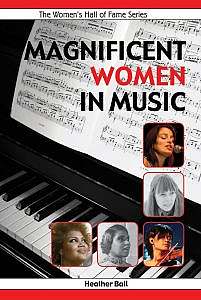 Whatever the PDSB actually decided to do about bringing the library collections up to a good standard of equity and recognition of people from different backgrounds, the plan went seriously off the rails as books like those above disappeared along with some from the “Harry Potter” series and – incredibly – books from Second Story Press whose primary aim is to publish books about human rights, diversity, the environment and so on. Full disclosure- publisher Margie Wolfe is a friend. Amongst pictures of books in the garbage are Second Story’s “Magnificent Women in Music” and “Bobbie Rosenfeld: The Olympian Who Could Do Everything.” As far as Ms. Wolfe could tell, there were no guidelines or consistency in the process.
Whatever the PDSB actually decided to do about bringing the library collections up to a good standard of equity and recognition of people from different backgrounds, the plan went seriously off the rails as books like those above disappeared along with some from the “Harry Potter” series and – incredibly – books from Second Story Press whose primary aim is to publish books about human rights, diversity, the environment and so on. Full disclosure- publisher Margie Wolfe is a friend. Amongst pictures of books in the garbage are Second Story’s “Magnificent Women in Music” and “Bobbie Rosenfeld: The Olympian Who Could Do Everything.” As far as Ms. Wolfe could tell, there were no guidelines or consistency in the process.
Peel DSB director Rashmi Swarup issued a statement after the story came to light, explaining that “Harry Potter” and “The Diary of Anne Frank” were still safe on the Board’s shelves. It was only following the guidelines listed above; teachers were not told to remove books just because they were published prior to 2008.
Opposition
Tom Ellard, a Peel parent and head of the group Libraries Not Landfills isn’t buying this. He explained to me it’s clear from both student accounts and photos, books past their 15-year best-before date were being removed from circulation- maybe not from the Peel Board collection as a whole, but certainly from individual schools. This is not just a bureaucratic mistake he thinks; too much time and money has gone into the process. As far as he’s concerned the cull is deliberate and ideological. But ideology changes over the years and he worries that what is currently happening in Peel might be a blueprint for culling books in the future.
It’s hard to say what is actually going on at the Board. Multiple phone calls and emails to trustees and senior Board administrators have been met with radio silence. Basic questions like how the book cull went off track, responsibility of teachers to make judgement calls about books that might not fall under the Board’s equity rubrics and reimbursement for vanishing books aren’t answered. Its Public Engagement and Communication department repeated much of what the director said earlier, explaining – again- the MUSTIE criteria and extolling teachers’ enthusiasm about filling school shelves with good books.
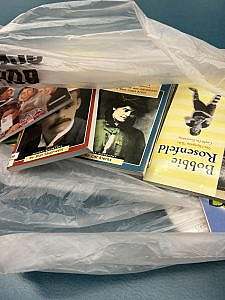
What about the list of weeded books promised at the May 24th Board Meeting? That’s not available since the Ministry told the PDSB to stop throwing out books. Until officials decide to talk, it isn’t possible to find out what really happened. This is a problem for a Board wanting to regain credibility and goodwill of the people who send their kids to its schools as it moves on with its plan to improve school life for its diverse students.
Future planned book audits
Until the Ministry put a hold on the process, more auditing of books was to come. A second step, a new one for the Board, entailed an “anti-racist and inclusion audit” that would ensure books don’t “perpetuate or reinforce racist content, stereotypes or promote deficit thinking” This would be the job of teacher librarians in deliberation with each School Advisory Council. So far, so good, as long the broader school community was involved. That didn’t happen, according to Tom Ellard who told me that the manual supporting the audit, wasn’t available back in the spring – even to his trustee – when he first became aware of the issue.
For the anti-racist and inclusion audit, teachers would consider a list of questions when deciding whether to include or exclude a book in a collection. Here are a couple of examples:
“Does this resource contribute to affirming views of historically and currently marginalized groups of communities?”
“Does this resource perpetuate a colonial world view? Does this present distortions or mistruths about the impacts of colonialism? Does it perpetuate stereotypes about marginalized communities?”
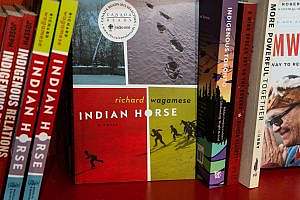 This would be a bold and important step. Of course, it begs the questions – why were books about marginalized people taken off library shelves and what is going to be done to restore them? Beyond that, a great deal of training and conversation would be needed to help educators understand what materials perpetuate myths about kids and their communities – how their position in society affects their views of what materials deserve a place on library bookshelves. PDSB Diversity, Equity and Inclusion Manager, Ketly Romulus Appleton spoke emphatically at the May 8th meeting about the requirement for educators to develop such a “critical capacity” to uncover harmful books, adding “It’s about systemic changes. We’re not just cleaning up libraries, because we never want to be in this situation again.”
This would be a bold and important step. Of course, it begs the questions – why were books about marginalized people taken off library shelves and what is going to be done to restore them? Beyond that, a great deal of training and conversation would be needed to help educators understand what materials perpetuate myths about kids and their communities – how their position in society affects their views of what materials deserve a place on library bookshelves. PDSB Diversity, Equity and Inclusion Manager, Ketly Romulus Appleton spoke emphatically at the May 8th meeting about the requirement for educators to develop such a “critical capacity” to uncover harmful books, adding “It’s about systemic changes. We’re not just cleaning up libraries, because we never want to be in this situation again.”
And then there’s the political understanding both educators and school communities must develop about views of those who write books and curricula meant to keep others in their prescribed places. For example, the same Ministry of Education that issued the Peel Board 27 directives, cancelled the Indigenous peoples’ curriculum writing group right after the 2018 election. It cancelled and rewrote what Premier Doug Ford called the “sex curriculum.” These decisions were political – based on who had the ear of the governing party of the moment. Any school board that seeks to stand up for people without much power has to have the arguments at hand and the spine to support what it says it stands for.
The second question above is even more significant. Any discussion of a colonial world view begs questions of power. Right now, we watch as those questions are played out in Gaza and the West Bank. Is this ongoing horror show a question of Israeli right of self-defence? Is it about a history of settler colonialism over Palestinian people? Two years ago, the Toronto DSB put up a page on its website declaring statements critical of the state of Israel, like saying it supported a system of apartheid, were anti-semitic. It took a position that could well be argued, reflected “a colonial world view:” refusal to countenance criticism of a powerful state; conflating that with criticism of Jewish people in general. Again, here is an example of a highly political and deeply divided discussion that schools will have to address; someone is going to write a book about a child in the West Bank living under what they view to be colonialist apartheid. Avoiding “distortions or mistruths about the impacts of colonialism” requires strength of conviction and a clear view of what this means.
Representation of people
I can’t read about the current iteration of the third step, the “representation audit;” again the process is on hold and the Board declined to share any current information about it or updates to a weeding manual that it says is not current. The purpose of the third step was described at the May 8th meeting: “to identify voices, identities and perspectives that are over-represented (my emphasis) and those who (sic) are missing.”¹
This is really worth a closer look. If it hasn’t already done so, the Peel Board ought to drop this plan. The older weeding manual explains that the teacher librarian would go through novels, for example, and sort them into piles based on the main character’s “identity,” keep track of their numbers and list them on a chart according to each identity. Teacher-librarians would consider whether libraries contain sufficient diversity of books to enable kids to recognize themselves as well as their school mates from different backgrounds. The point here seems to be to have a library that doesn’t assume everyone who uses it is white and middle class – that libraries have a role to play in social change and fairness simply by promoting the interests and needs of the kids who use them.
But there is a dangerous question the manual asks of staff: “Are there titles from over-represented identities that should be “pruned” from our collection to make space for all voices?” This raises more serious and alarming questions: What is an “over-represented identity?” On the face of it, maybe the manual is talking about white people like me and God knows we’re generally over-represented, but not all of us – not 2SLGBTQ+ white people, not white people with disabilities, not economically deprived white kids and so on. How does an identity get to be “over-represented?” Could there ever be “over-representation” of Muslims in a community, of Sikhs, of Jewish people? You see where this is going. Moreover, who decides what identity is over-represented? Does the Board propose a formula? Is it a matter of eyeballing which voices and perspectives are too numerous? Can you imagine, for example, presenting books reflecting 2SLGBTQ+ people to community members who one day decide they need to be pruned because they think there are enough books about them in the school library?
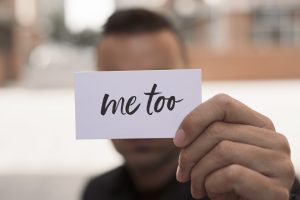 The political implications of this simple question are enormous, if not now, sometime. It’s too easy to turn this question against its apparent purpose to give space for other voices. Education critic, Henry Giroux writes about the rise of the extreme right in the U.S. under politicians like Ron DeSantis who give cover to suppression of minorities and ideas under the guise of “patriotic education”. Even though it may be the opposite of what the Peel DSB wants to do now, that question opens a door for another time when politicians and others with influence say enough is enough as far as it goes with a certain group of people or there’s too much representation, too much “wokeness” for instance, and something needs to be done about it.
The political implications of this simple question are enormous, if not now, sometime. It’s too easy to turn this question against its apparent purpose to give space for other voices. Education critic, Henry Giroux writes about the rise of the extreme right in the U.S. under politicians like Ron DeSantis who give cover to suppression of minorities and ideas under the guise of “patriotic education”. Even though it may be the opposite of what the Peel DSB wants to do now, that question opens a door for another time when politicians and others with influence say enough is enough as far as it goes with a certain group of people or there’s too much representation, too much “wokeness” for instance, and something needs to be done about it.
Don’t “prune” literature because you decide we’ve seen enough of it. Instead, keep adding to the list of books young people can use to make a bit of sense of their world. Don’t deny them that chance to read wonderful books; just find more from writers of diverse backgrounds and perspectives. There is no checklist that will enable this, no algorithm to determine what literature deserves to be pruned from “over-represented” people. If kids don’t like books, they won’t read them. That’s enough.
People who seek to ferret out over-representation need to give their heads a shake. We are swimming in division and barely staying afloat. How much more of it do we need to see before realizing that taking away books because they speak of “over-represented” groups accomplishes the opposite of inclusion? Educators must not add to the problem by taking it upon themselves to decide what groups of people ought to have their books “pruned.” That very euphemism is dishonest and abhorrent.
Peel needs to open up and talk about weeding books and the implications this entails. Things didn’t go well when it tried to ignore problems in the past and it won’t work now. Weeding books may have stopped for the time being, but it doesn’t mean trustees and staff shouldn’t discuss policies surrounding the process with the people who are concerned about its schools.
Anything less, misses the point of much-needed change here.
¹ Minute 38:00

